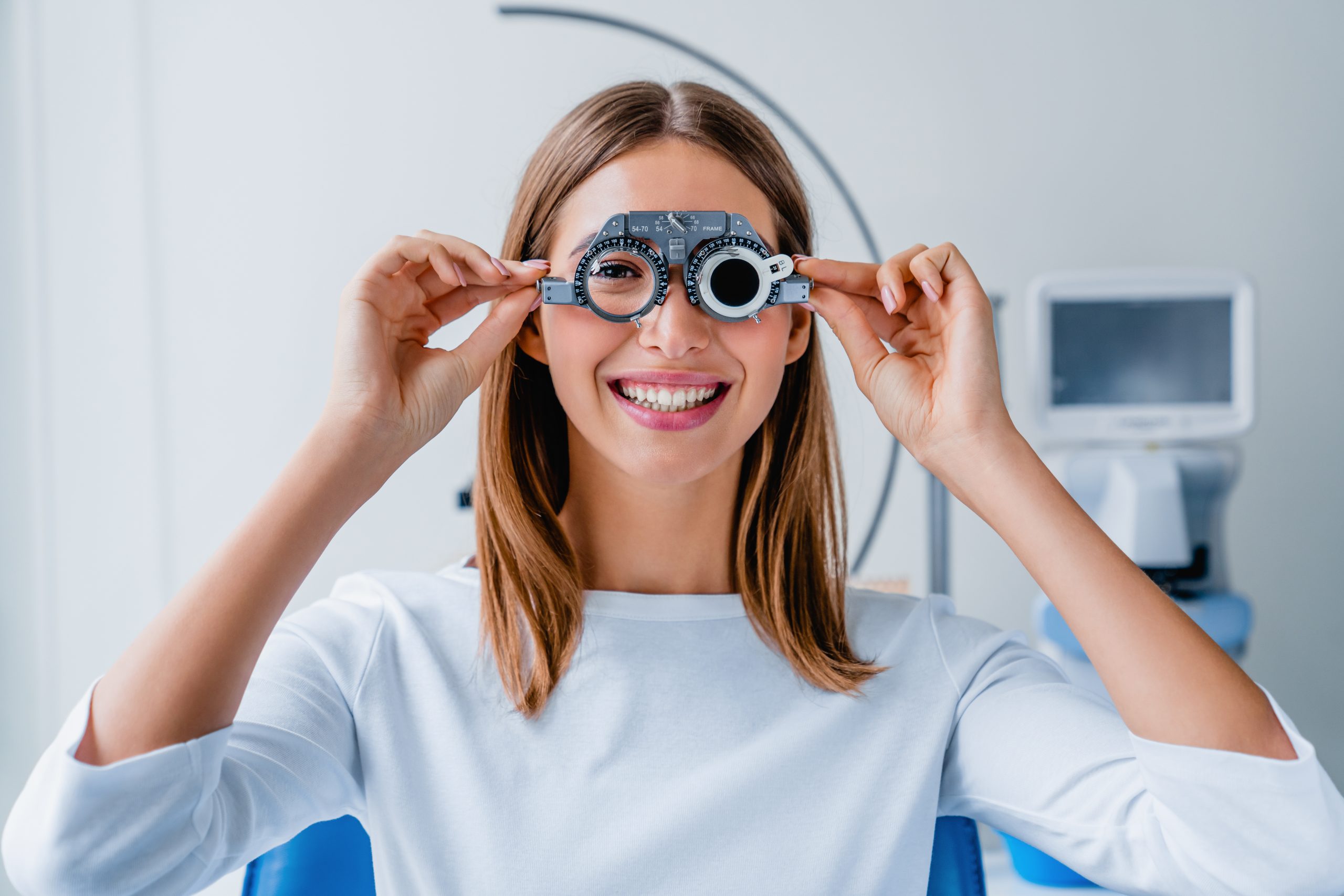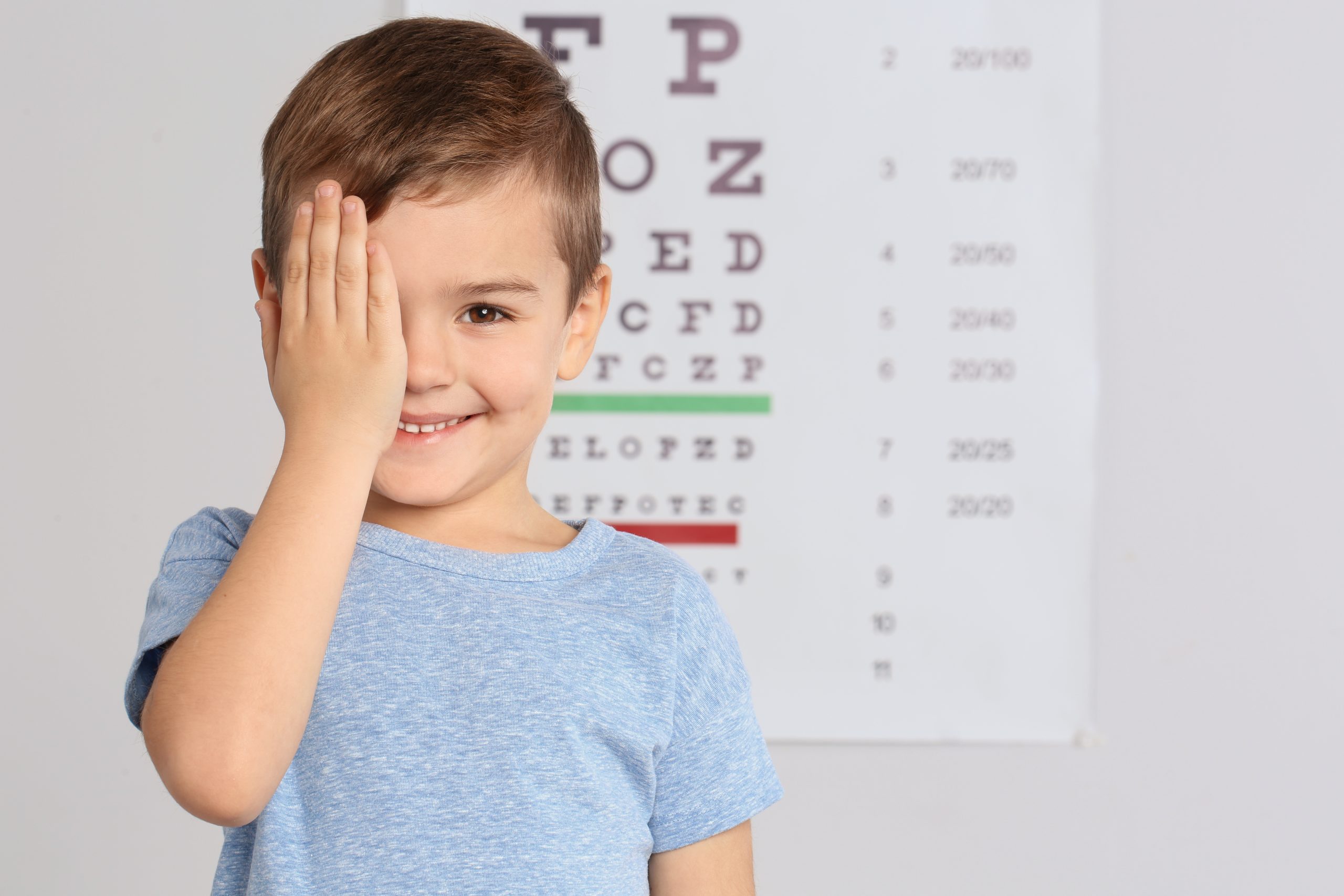Vision and Eye Therapy in Parker Colorado
What is Vision Therapy?
Vision therapy is an evidence based program to correct various problems that impact someone’s ability to receive and process visual information. The goal of our therapy program is to improve visual comfort, ease, and efficiency; while enhancing visual processing or the interpretation of visual information. Vision therapy can be beneficial to children with vision-related learning difficulties like reading and poor visual comprehension. Vision therapy can benefit people of all ages who have experienced various visual symptoms like blurry vision, double vision, and headaches.

Visual eye therapy is an individualized eye treatment involving specialized filters, lenses, exercises, optical devices, and other instruments to train and correct eye problems that affect brain-eye communication. As a visual rehabilitation program, these are more than eye exercises. In-office Optometric Vision Therapy is supervised by an optometrist and supported by ongoing, evidence-based scientific research. It improves patient eye coordination and visual processing, which are essential for a good visual system.
You could have perfect “eyesight” or be 20/20 but still have a developmental vision problem. “Eyesight” is only 1 of many visual skills required for visual learning. You often need personalized vision therapy services to help improve your visual system.
Eye Conditions that Can be treated with Vision Therapy
1. Convergence Insufficiency
This is an eye teaming problem when the eyes have a decreased ability to converge or turn inward to a near target like reading or screens. Symptoms of convergence insufficiency include blurry vision with near work, double vision, headaches, and eye fatigue on screens. It is the most common diagnosis that can be improved with vision therapy.
2. Amblyopia
This vision disorder primarily affects children and causes poor vision, usually in one eye, because of abnormal visual development. It occurs when the connections between the eye and the brain don’t form as they should. Vision therapy for amblyopia improves the patient’s visual acuity, binocular vision, visual processing abilities, reading fluency, and depth perception.
3. Strabismus
More commonly referred to as crossed eyes or an eye turn, Strabismus is a condition with a misalignment of the eyes. Either of the eyes may turn inward (esotropia), outward (exotropia), up (hypertropia), or down (hypotropia) while the other eye remains focused on the target. An eye turn may be constant and occurs all the time or intermittent, which happens only sometimes. Vision therapy can help patients with strabismus better understand how to use both eyes together with the goal of developing depth perception.
4. Double Vision
Also known as Diplopia, it can be caused by poor eye teaming skills and trauma to the muscles or nerves that control how the eyes develop and function. Vision therapy for double vision may be able to restore and/or develop a clear and single vision.
5. Eye Teaming
Also defined as binocular vision, this visual skill allows both eyes to work together simultaneously when turning in or out, which is one of the visual skills required when switching focus from far away to up close. Depth perception requires both intense eye teaming and sustained visual comfort. Eye teaming is also important in sports to follow a ball coming toward you.
6. Tracking Problems
When there are problems with tracking, eye movements from side to side are either sluggish or inaccurate. One of the first signs of tracking problems is when people use their fingers to keep their place while reading. Sometimes they will use their head to find an object instead of just tracking with their eyes. This may impact your reading fluency and comprehension, copying, handwriting, and athletic prowess.
7. Focusing Difficulties
These problems arise when a person can’t quickly and accurately relax or increase their focusing system. This visual skill is required to keep something clear when switching focus at different distances, like copying from the board. It is also important to train the focusing system to sustain for an extended period of time, which is required for long periods of near work or screen time.
8. Eye Fatigue
This is a common symptom that arises from a deficiency in one or more of the visual skills listed above. The rising usage of PCs and other high-tech devices like iPads and PDAs is currently the most widespread factor.
9. Depth Perception and 3D Vision Difficulties
Depth perception is achieved when your brain constructs a single 3D image from the two images obtained from each eye. Depth perception is especially important in achieving an efficient visual system, especially for driving and athletic pursuits.
10. Visual Perception and Processing Issues
This can interfere with how the brain processes visual information. Visual perceptual processing skills include visual memory, visual motor and auditory integration, visual form constancy, visual-spatial relations, visual figure ground, visual closure, and visual discrimination. Numerous visual processing problems exist, including trouble drawing or copying, poor recall of visual information, poor reading comprehension, trouble with spatial concepts, poor hand-eye coordination, reversals or letters and numbers, and many others. Visual therapy exercises can help strengthen the visual system and improve these symptoms.
Visual Therapy Services that Unlock Your Vision Potential
Book Your Appointment Today
How does Optometric Vision Therapy work?
Vision therapy is widely used to improve the coordination and regulation of eye development. First, a visual processing evaluation is needed to determine if vision therapy can help. The visual processing evaluation uses diagnostic testing to determine which of the above visual deficits are present.
If vision therapy is indicated, treatment includes a personalized vision therapy program based on the visual deficits observed. Techniques used in vision therapy include:
- Visual exercises
- Training prisms
- Training lenses
- Therapeutic filters
- Specialized vision therapy procedures
- Guided computer and virtual reality exercises
- Visual perceptual training and games
Your eye condition’s severity and nature will dictate how often you visit the optometrist, how much treatment work you must perform at home, and how long your treatment will last.
How to know when to come in for a visual processing evaluation?
If you or your child struggles with any of the following symptoms, then I would recommend a visual processing evaluation to determine if vision therapy can help:
- Reading difficulties
- Skipping lines or words when reading
- Difficulties comprehending what is read
- Reversing letters and numbers
- Uses finger to keep place while reading
- Blurry vision
- Double vision
- Headaches with screen time or near work
- Eye fatigue
- Avoiding homework or poor attention with visual tasks
- Closing/covering an eye or turning head while reading
- Wanting improved visual sports performance
Is there an age limit?
Vision therapy can provide treatment of vision problems for patients of all ages! Vision therapy programs are developed based on age-appropriate activities and could be helpful to kids and adults of any age. Due to neuroplasticity, or the brain’s capacity to develop, adapt, and shift throughout our lives, people of any age can benefit from a vision therapy program.
How quickly will you see results?
Although each patient’s vision therapy treatment plan will be unique, a typical patient should expect to start benefiting after eight weeks. Based on the severity of the deficit, a thorough vision therapy treatment program usually takes anywhere between 3 months to a year.

Why You Should Choose Good iSight For Vision Therapy
Good iSight Optometry & Vision Therapy, can cater to all family needs with vision therapy and optometric solutions suitable to improve life and comfort. We not only provide eye exams, but visual processing evaluations to determine if vision therapy can change your life! Vision problems can be a problem of the past. Contact Dr. Kalynn Good for specialized vision therapy and optometry services in Parker, CO, for you and your family.
